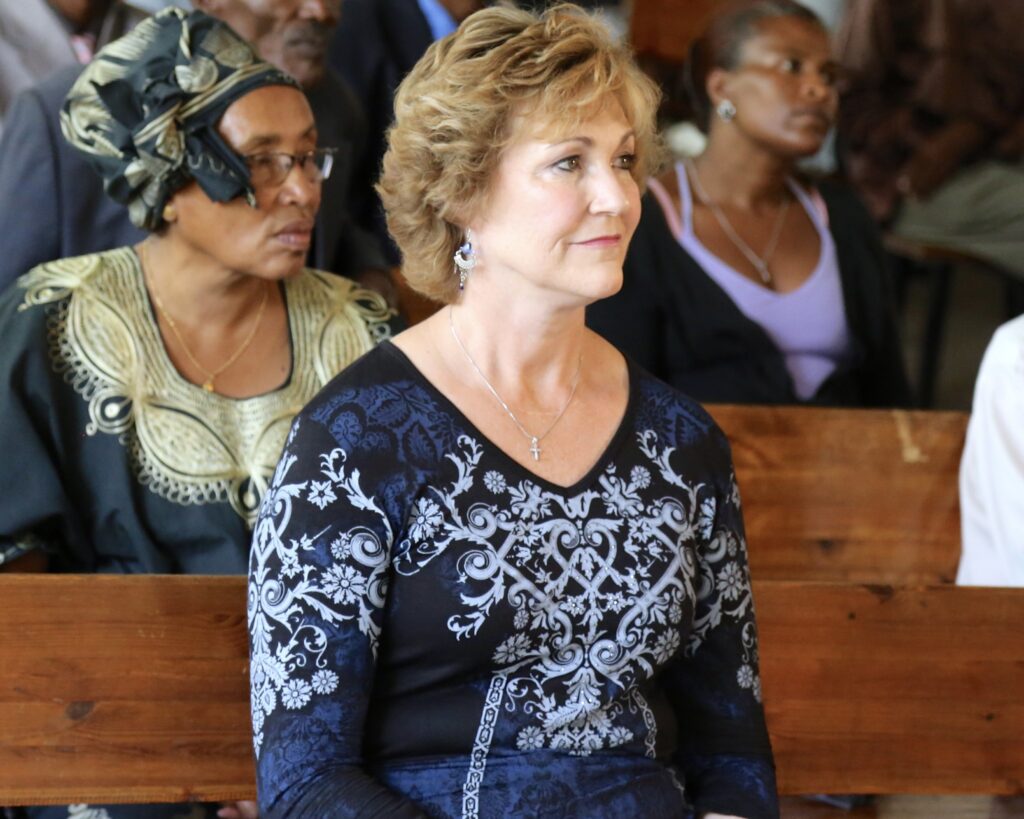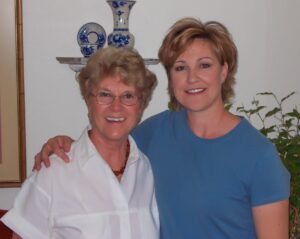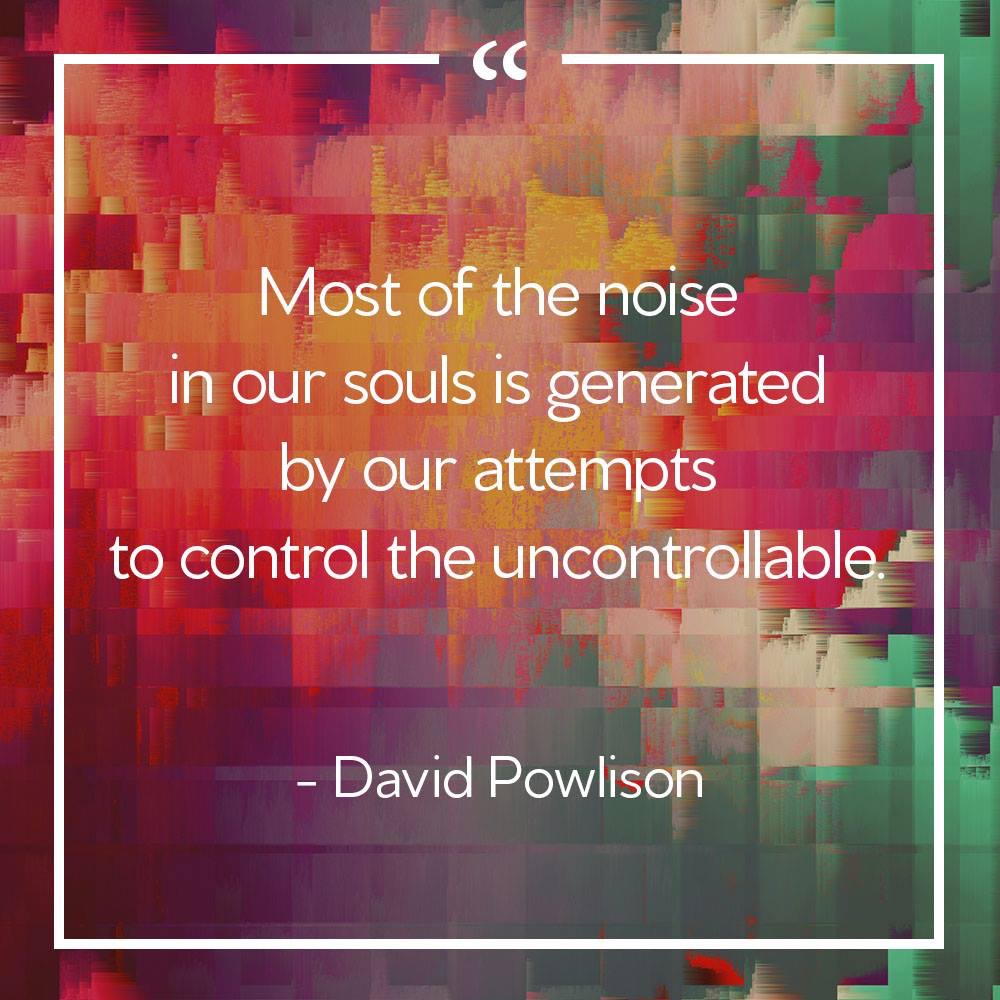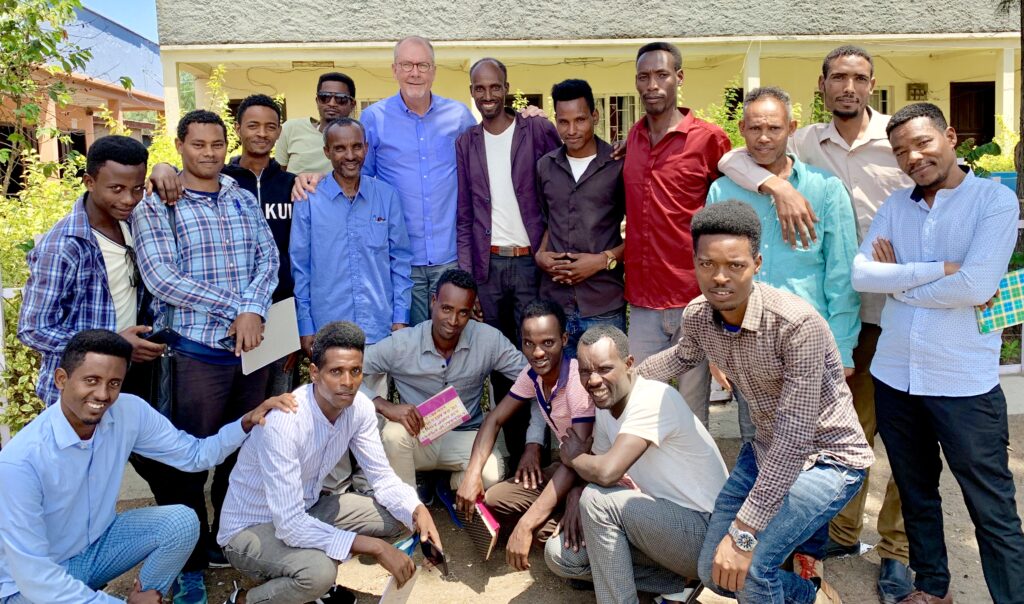
Lisa and I just celebrated our 40th Wedding Anniversary this past week, and we took some time to reflect on God’s faithfulness through the years. As we did, we were overwhelmed by the gracious, unmerited favor that He has shown us time and time again.
In many marriages, when one spouse is in public ministry and the other partner is a “behind-the-scenes” kind of person (which Lisa is), people never have a chance to appreciate the person who lives in the “shadows.”
If you’ll indulge me, I would like to share four things Lisa has modeled for me over these past 40 years (and for which I am incredibly grateful).
ONE: Mercy triumphs over judgement.
Lisa’s middle name could have been mercy (it’s Joy – I’ll get to that in a minute). Mercy exudes from her naturally. You can see it in her eyes.
Her primary spiritual gift is the gift of “mercy” (Romans 12:8).
I remember preaching through the book of James early on in my pastoral ministry and coming to verse 13 of chapter 2 and thinking, “Mercy should be at the core of our hearts as Christ-followers because of the great mercy that God has shown to us in Christ.”
“For judgment is without mercy to the one who hasn’t shown mercy. Mercy triumphs over judgment.” (James 2:13)
I remembered being sobered by the thought that “judgment is without mercy to the one who hasn’t shown mercy.”
Ephesians 2:4 says God is “rich in mercy.” Nowhere else in the Bible is God described as “rich” in anything. The only thing he is called “rich” in is: mercy. Aren’t we thankful for that?
Lisa has modeled before me what “rich in mercy” looks like in her day to day relationships.

TWO: Be fully present today… in this moment, with this person.
I’ve always admired how Lisa could live fully “today” without much concern for tomorrow.
Jesus said in Matthew 6:34, “Therefore don’t worry about tomorrow, because tomorrow will worry about itself. Each day has enough trouble of its own.”
Lisa is not a highly anxious or fearful person, and part of that (I believe) has to do with her ability to focus on “now.” She doesn’t think a whole lot about the tomorrows – she knows God will be there with His abundant grace (2 Cor. 12:9) just as he was yesterday and today.
All too often, Lisa has paused to look at me in the midst of a conversation to say, “Paul, you’re not here, are you?” And too many times to count, I wasn’t “there.” I was thinking about something later in the day, tomorrow, next week… or even further out into the future.
Lisa has modeled how to be fully present when communicating, whether that was with me, a family member, a friend – or even a stranger.
People can see in her eyes that she is really listening… and that she really cares.
I can’t tell you the number of times that we have been traveling – on a plane or in an airport – where Lisa strikes up a conversation with another woman. And within fifteen minutes, this complete stranger is in tears, pouring her heart out to my wife, instantly considering her a dear friend.
Lisa listens well (really well). Which is one reason why so many people love her. She is “quick to listen” (James 1:19).
THREE: Endure pain with joy and without complaint.
To say that Lisa has had to endure far greater pain than I ever have is an understatement. From our earliest years of marriage, she has had physical challenges – for example, migraines that are absolutely debilitating, to the point where any noise or slight bit of light would cause her head to throb and she would become overwhelmed with nausea.
I’ve had one migraine in my life and I’ll never forget it – I just wanted to die (and thought I was going to). She has had dozens, if not well over 100 classic migraines in her life (thankfully, she rarely gets them anymore)!
 In the Fall of 2007, Lisa’s dear mom, Marilyn, went home to be with the Lord. Marilyn was her best friend and one of her closest confidants. It truly broke her heart to say goodbye.
In the Fall of 2007, Lisa’s dear mom, Marilyn, went home to be with the Lord. Marilyn was her best friend and one of her closest confidants. It truly broke her heart to say goodbye.
And then, four months later, Lisa’s dad (Wally) passed away (with my dad passing in the middle of those four months). Three of our four parents were gone from earth within a four-month period of time.
Lisa knew that we would all be reunited in heaven one day (both of her parents were strong, godly believers in Christ, as well as my dad). But the thought of no more “coffee parties” with her mom on a Sunday afternoon or no more (almost) daily phone calls or visits to say “hi” and “how are you?” (among many other things), was truly upsetting.
Both of our hearts were broken.
Only five months later, we found out that Lisa had breast cancer. We cried and grieved together, sometimes holding each other while we just wept. No words, just tears.
But God showed His faithfulness over and over again. Family, friends and ministry partners helped Lisa (and myself) get through that “valley.”
We look back now and see so many deep and profound lessons God taught us. He used that time to deepen our spiritual roots and mature us in new and profound ways.
Lisa showed me what Job 23:10-12 looks like when lived out in those darkest valleys.
“But He knows the way I take; When He has tried me, I shall come forth as gold. My foot has held fast to His path; I have kept His way and not turned aside. I have not departed from the command of His lips; I have treasured the words of His mouth more than my necessary food.”
Through that season our prayers deepened, and God’s Word became our daily sustenance in a whole new way.
In the midst of the seasons of pain and grief, Lisa would somehow demonstrate joy – without complaint. She always amazed me at her upward and outward focus – even when everything in her body and her heart was saying, “I need to just focus on me!”
James 1:2-3 says, “Consider it a great joy, my brothers, whenever you experience various trials, knowing that the testing of your faith produces endurance.”
1 Peter 1:6-7 says, “You rejoice in this, though now for a short time you have had to struggle in various trials so that the genuineness of your faith — more valuable than gold, which perishes though refined by fire — may result in praise, glory, and honor at the revelation of Jesus Christ.”
As I mentioned above, Lisa’s middle name is “Joy” (as a side note, this middle name was also Marilyn’s middle name, and is shared by our daughter and two of our granddaughters).
Lisa has modeled for me “joy in the midst of suffering.”
FOUR: Love freely, generously and joyfully.
C.S. Lewis said, “Humility is not thinking less of yourself. Rather, it is thinking of yourself less.”
When Lisa walks into a room, she instantly thinks about others. She engages in conversations and enters into another person’s story.
As I’ve said before, the primary way we love an invisible God is by loving well the people that God has put right in front of us. I have been the gracious recipient of her love.
One observation I’ve made throughout my years in ministry is that one of the most overlooked marks of maturity is being able to “rejoice with those who rejoice” (Romans 12:15). Why? Because jealousy is such a strong temptation for all of us. When someone else is blessed more than we are, we are commanded to rejoice with them.
Lisa is one of the best at doing this. She’s genuinely happy for others, even if it’s at her expense.
Tim Keller wrote:
“To be loved but not known is comforting but superficial. To be known and not loved is our greatest fear. But to be fully known and truly loved is…. a lot like being loved by God. It is what we need more than anything. It liberates us from pretense, humbles us out of our self-righteousness and fortifies us for any difficulty life can throw at us.”
Ultimately, only God knows us “fully” and loves us “completely.” And that’s why we need to always work toward finding our identity and security in Him (and Him alone). Anything less than this will harm us and our relationships with others.
Having said that, Lisa has demonstrated to me – as close as I think one human can for another – what it means to “know someone fully” and yet “love them completely.”

As I sit typing this on our
40th wedding anniversary (October 11, 2020),
I am forever grateful for God’s kindness in gracing me with
Lisa Joy Madson.
Through her life, she has given me glimpses of Jesus that are simply beautiful.
Finally, here was my journal entry on my flight home from Asia and Africa earlier this year (Spring 2020) …

“Her children rise up and call her blessed; her husband also praises her: ‘Many women have done noble deeds, but you surpass them all!’ Charm is deceptive and beauty is fleeting, but a woman who fears the LORD will be praised. Give her the reward of her labor, and let her works praise her at the city gates.”
(Proverbs 31:28-31)
Pardon from sin and a peace that endureth,
Thine own dear presence to cheer and to guide.
Strength for today and bright hope for tomorrow.
Blessings all mine with ten-thousand besides.
Great is Thy faithfulness!
Great is Thy faithfulness!
Morning by morning new mercies I see;
All I have needed Thy hand hath provided—
Great is Thy faithfulness, Lord, unto me.
(From the hymn: Great is Thy Faithfulness)









 In the Fall of 2007, Lisa’s dear mom, Marilyn, went home to be with the Lord. Marilyn was her best friend and one of her closest confidants. It truly broke her heart to say goodbye.
In the Fall of 2007, Lisa’s dear mom, Marilyn, went home to be with the Lord. Marilyn was her best friend and one of her closest confidants. It truly broke her heart to say goodbye.


